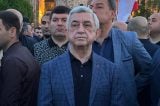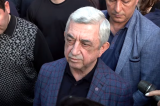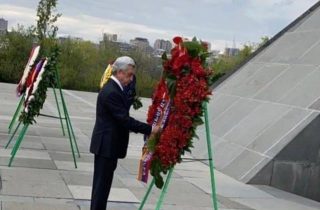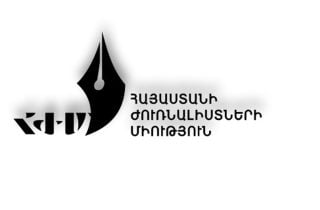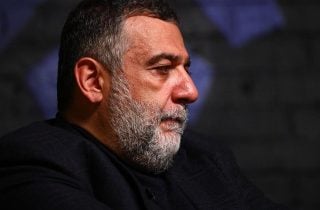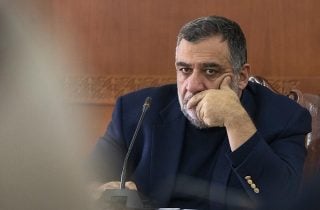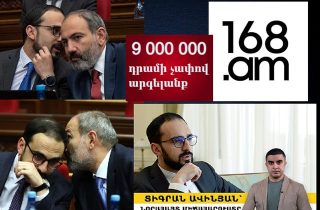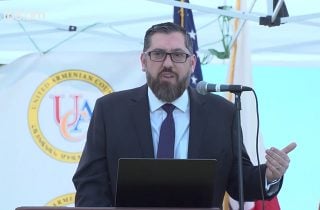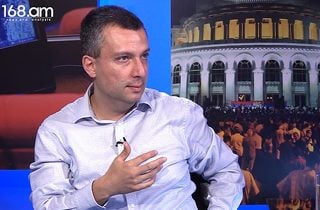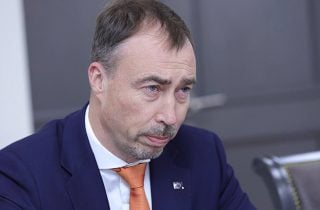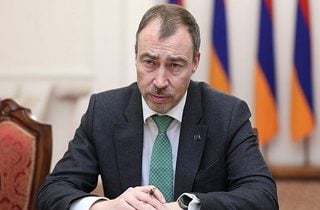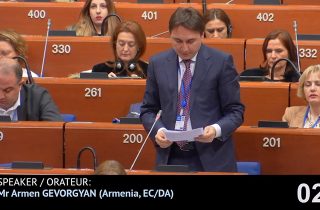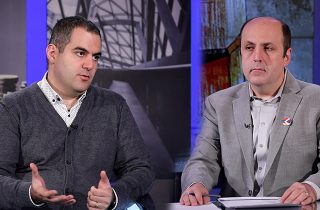“The best stimulus to attract American investments to Armenia are open borders”. Richard Mills
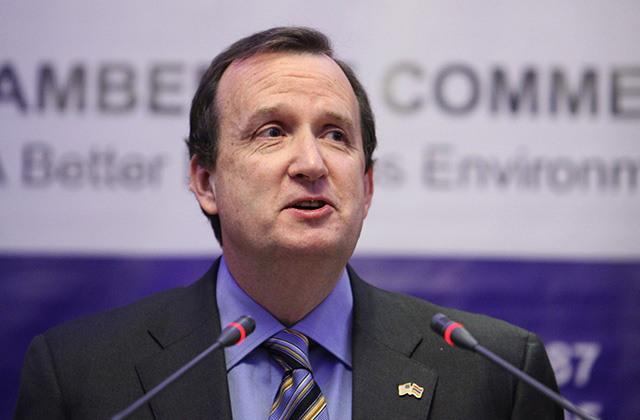
Today we talk to the US ambassador to Armenia Richard Mills
– Mr. Ambassador you presented your four priorities during your most recent speech-deepening of business and trade relations, fight against corruption, strengthening of democratic institutions, human rights and civil society as well as U.S. policy clarification. Why is democracy second on the list? Do you think that democracy is good enough in Armenia or are you guided by the principle “economic development-first and then democracy.” In the public-political agenda of Armenia there is always a question-democracy first and then economic development or vice versa. Which approach do you share?
– My four priorities were not intended to be in rank order and are interdependent. And I think that is especially true with these two priorities. To attract business, a country must offer a stable, welcoming environment free of corruption. Foreign businesses large and small vote with their investment dollars; if they see a country with political uncertainty, they either don’t invest at all, or may decide to pull their money out.
– Your interview with RFE/RL two months ago specifically the part where you said corruption is a threat for country’s national security (because external forces can control the country) was widely commented on by political and civil circles. Head of the republican Party Faction Vahram Baghdasaryan assessed your statement as meddling into internal affairs of Armenia. Your statement was also widely discussed in media and by experts who were mostly claiming that when saying it you meant dependence of Armenia’s corrupt officials on Russia. Was that statement of yours based on concrete facts and information?
– Yes. It was based on information from U.S. investors and business people who have shared with me their experiences of operating in Armenia. It also reflected what I have learned from discussions with Armenian business people and entrepreneurs, as well as from officials in the Armenian government who recognize there are serious corruption issues to tackle. All of this information led me to focus on the issue, especially if the Embassy is going to work to attract U.S. investment to Armenia. I cannot encourage U.S. businesses to invest in Armenia without seeing progress on fighting corruption and encouraging transparency in government.
– There is lack of confidence in Armenia and even Armenian authorities speak about it. In this situation you have optimistic moods about government steps to fight corruption. Public, however is skeptical about it. Do you have criteria (qualitative, quantitative or stipulated by certain time) to measure the effectiveness of the fight against corruption. If yes, which are those?
– Armenia is achieving great things in many different sectors. I first began working on Armenian issues for the State Department in the 1990s, and I can assure you that returning to Armenia now I see many positive changes that are benefiting the Armenian people. This is not flattery, this is fact. The Armenian people still have work to do in a number of areas, and corruption is one of those, and the U.S. government wants to help along with others in the international community, such as the EU. But, yes, I do think there has been progress in reducing corruption in some specific government services – such as applying and collecting social benefits or obtaining government services such as passports and drivers licenses. And I’m not alone in this thought. There are outside organizations, such as Transparency International, that measure corruption and the perception of corruption and we see Armenia steadily improving in those rankings. The Armenian people can also judge how their country is addressing corruption by measuring international investment in Armenia, because businesses will not invest in a country where corruption takes away profit and control over their efforts.
– Speaking about corruption you said that civil society should collaborate with the government to find solutions to issues. Legitimacy is a problem in Armenia. Public as well as civil society do not trust the authorities while you call for collaboration. Can illegitimate authorities solve issues of legitimacy and register notable results using effective ruling mechanism?
– A vibrant and active civil society is a vital ingredient for a functioning democracy. And echoing what I said in my policy speech before the American Chamber, I want to say that the civil society here in Armenia is working; it is active; it is lively; it is making a difference. In my opinion Armenian civil society is, behind only the Baltic nations, among the most vital and active in the former Soviet Union. With that said, civil society cannot change a nation alone. It must work in tandem with government and politicians. And indeed, I have seen first-hand that many non-governmental organizations are effectively working with government institutions. And I have seen many government officials from various ministries understand the value of working in partnership with civil society. So we encourage both sides – government and civil society — to continue to find these areas of mutual interest, where progress can be made.
– Recently the Head of European Delegation in Armenia said that there is lack of knowledge and misunderstanding of European principles and pan-European values which is used by some external forces. You mentioned in your speech that your fourth priority will be explaining U.S. foreign policy. Does it mean that you also accept the existence of misunderstanding of American policy? Can we say that the Western policy to some extent failed in Armenia and your statement and the statement of EU delegation head mean reviewing the policy or radically changing it?
– My statement was that I and my team need to do a better job explaining American foreign policy. I have spoken with a wide variety of Armenians and as I said in my remarks, too many of the Armenians I meet tell me it is difficult for them to find opportunities to hear the official U.S. message or that they do not understand broader U.S. foreign policy. While many of those I talk with understand the importance and depth of the U.S.-Armenia bilateral relationship, they don’t know about or fully understand larger U.S. foreign policy. So my team and I will be making a more concerted effort to find new ways to discuss our larger policy goals to new audiences in Armenia.
– The EU Ambassador also said that that though EU is not able to provide strong security guarantees to Armenia because the latter is a CSTO member and is in military-political alliance with Russia, EU is ready to discuss security issues with Armenia. You probably know that Armenia’s membership to EEU was explained by security issues of Armenia and NK. After that decision and Armenia’s refusal to sign Association Agreement with EU some viewpoints were voiced that West had its portion of guilt as it did not give proper security guarantees to Armenia. In the near future Armenia-EU negotiations will resume which many can be described as an opportunity for freshening/reloading relations. Do you think the West more specifically the EU and the U.S. have made conclusions after September 3, 2013 and will take steps to prevent the repetition of it by providing better security guarantees?
– No one can guarantee Armenia’s security better than Armenia itself. I can’t speak for the EU, but we believe that Armenia’s membership in the EEU and its deep and historic ties with Russia should not and, in fact, do not preclude Armenia from also pursuing strong, mutually beneficial relations with other nations such as the United States, or with organizations such as the European Union, NATO, the Council of Europe, etc. And we are determined to work with the Armenia military to contribute to Armenia’s security and defense.
Through our military-to-military relationship, over the last five years, the U.S. Department of Defense has provided extensive support to Armenia’s ongoing efforts to advance defense reform and increase its capabilities to contribute to regional and global security. Foreign Military Finance has assisted in the modernization and development of a professional armed force. Since 2002, Armenia has received in excess of $45 million worth of foreign military financial assistance and implemented 20 programs. The U.S. Office of Defense Cooperation continues to support the Armenian Ministry of Defense’s primary military education. On average, each year we send 20 to 30 Armenian military and civilian Ministry of Defense staff to professional education opportunities, and 90% of these students — upon returning from the Army War College, Command and General Staff College, and the National Defense University — continue to positions of increased responsibility within the Defense Ministry and General Staff.
Additionally, the U.S European Command’s military-to-military program and the Kansas National Guard State Partnership Program (SPP) conduct over 30 engagements per year with the Armenian Armed Forces. In the past five years, 260 such events have occurred, focusing on NCO development, Peace Keeping Brigade capabilities, Expeditionary Medical capability support, and EOD/Demining familiarization. The Kansas National Guard recently facilitated the NATO Operational Capabilities Concept (NEL-2 OCC) evaluation, which certified the Armenian Peacekeeping Brigade for deployments to UN/NATO peacekeeping operations.
All of these efforts show our deep commitment to partnering with Armenia in ensuring its national safety.
– Mr. Ambassador you attach big importance to TIFA as well as to the American Chamber of Commerce and its activity. Do you have approximate predictions what short-term and mid-term results can be registered in the American-Armenian economic relations? In the foreseeable future can we expect investments by major American companies similar to Contour Global which bought the Vorotan Cascade?
– The U.S. Embassy does not control U.S. businesses and we can’t dictate to them that they must invest in Armenia, nor would we want to. Armenia must attract such investment, as it did in the case of ContourGlobal. Companies of all size invest in countries when they can see predictability and transparency. And I am talking about predictability and transparency in every aspect of running a business, from taxation regulations to customs procedures. While I cannot guarantee a certain company will invest, I can guarantee that the U.S. Embassy will continue partnering with the Armenian people to create a business environment in which all companies – big and small, Armenian or American or from other nations –can compete on a level playing field. And this level playing field will increase the chances of future investment in Armenia. The Embassy will also identify potential areas for investment and business through our Country Commercial Guide and commercial advocacy.
– After the nuclear agreement with Iran everyone started talking about the new geopolitical and economic role of Iran in the region. Will Armenia as a transit corridor between Iran and Europe, considered for future possible big projects? Are the expectations among Armenians about Iran exaggerated? Do you also see real possibilities in this regard?
– I think there are possibilities for Armenia to benefit from Iran’s opening to the world, if Iran carries out its obligations under the recently agreed-upon Joint Comprehensive Plan of Action (JCPOA). I have to be clear the JCPOA is only the beginning of a very long process. The JCPOA is a measurable step away from the prospect of nuclear proliferation and towards transparency. If fully implemented, it will bring unprecedented insight and accountability to Iran’s nuclear program forever. As we move from Adoption Day now towards Implementation Day, we remain vigilant and mindful of not just how far we have come, but how much further we have to go in seeing that this deal is fully implemented. The United States is committed to working with all of our international partners to ensure that the IAEA has the resources it needs to verify all of Iran’s JCPOA commitments going forward. The United States will continue to work with all of the members of the P5+1 and with the EU in maintaining our shared commitment to keep the existing sanctions regime intact until Implementation Day, and then to take the appropriate steps to immediately lift the relevant nuclear-related sanctions when that day is reached. We thank Armenia for its true commitment to the international community’s sanctions; I know it has not always been easy for Armenia to do so. But I think Armenia’s strong support of this effort shows the nation’s true commitment to the international community.
– The United States was the most active champion of the Armenian-Turkish reconciliation process initiated in 2008. That process, to put it mildly, is currently in a frozen state. The impression is that international community is not any more interested in this issue. You mention that your first priority is ensuring U.S. investment in Armenia. Will American big capital be brought to a country which is in blockade by its two neighbors. Isn’t your first priority and opening of Armenian-Turkish border indirectly related to each other?
– We urge all sides – Armenia, Turkey, and Azerbaijan — to remain open to efforts at reconciliation and normalization, which would lead to open borders that would promote stability and prosperity all around. We will partner with those Armenians — as well as with those Turks and Azerbaijanis – who wish to bring this conflict to a peaceful, and sustainable conclusion. I agree the biggest shot in the arm to attracting U.S. investment to Armenia would be open borders, especially with Turkey. An open border would also, I believe, help in the fight against corruption. Because closed borders make it easier for powerful interests to control markets, stop competition, and demand kickbacks in a grey market. But, even with the borders closed, there are real opportunities for U.S. investors and businesses, as we have seen in sectors like mining and IT. And I believe those borders will open the future – it is in the interest of all the region to open them – and the U.S. firms that come now to Armenia will be positioned to take advantage when the borders fall.
– The same about N-K conflict settlement. Will American capital be brought to a country which is in semi-war situation? Are the goals somehow interrelated or you view them as separate directions?
– I would reiterate that we believe the Minsk Group process is the way to solve this conflict peacefully and through diplomacy. We look forward to a day when the larger region is more open and trade can freely flow.
– Recently Russian President Vladimir Putin decreed to start negotiations on establishing anti-air defense system with Armenia. Many experts say that this system will be directed against regional pro-NATO countries like Georgia and Turkey. Does the United States view this step as increasing influence by Russian in Armenia or a threat against NATO?
– We don’t view this announcement to indicate any new, significant advance in Russian-Armenian military cooperation. We do not understand this to be directed at Georgia or Nato, but aimed at ensuring Armenia’s security.
By GARNIK GEVORGYAN




